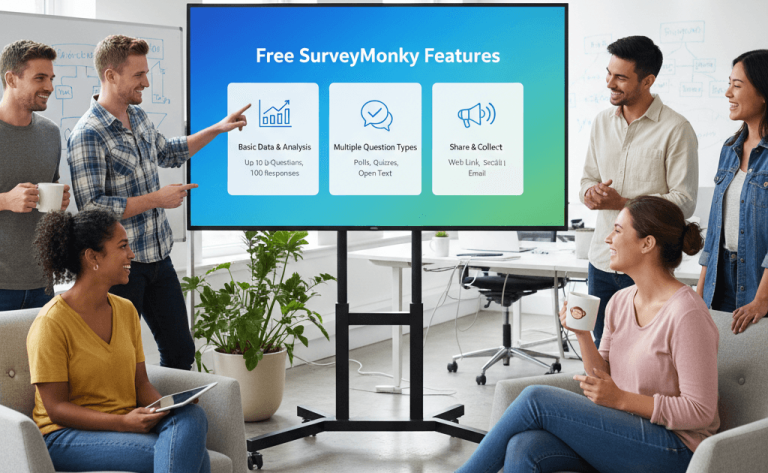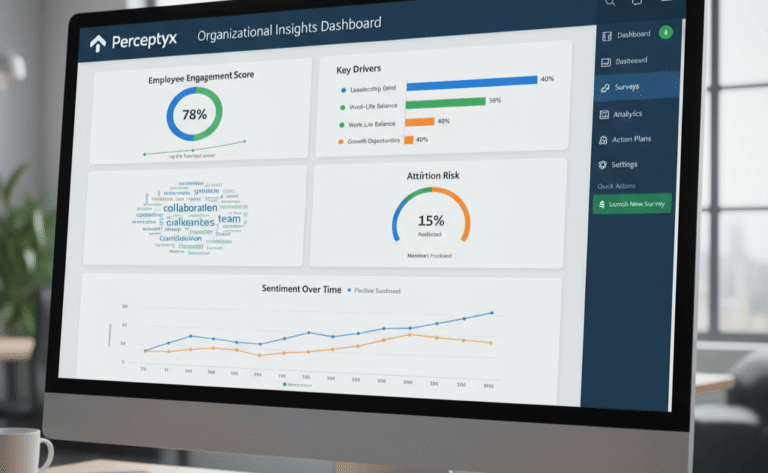Every great business decision starts with reliable data. However, collecting that data the right way is an art. This is where an independent market research consultant steps in, bridging the gap between raw survey responses and actionable insights. Unlike in-house teams, consultants offer an outsider’s objectivity and the technical skill to design studies that reveal what customers and employees really think.
Yet expertise alone isn’t enough. To make surveys efficient, professional, and impactful, consultants rely on tools that can scale across industries. Among the many options available, SurveyMonkey stands out as the platform of choice. Its combination of smart survey design features, advanced analytics, and distribution flexibility makes it indispensable in modern consulting. In this article, we’ll explore how an independent market research consultant uses SurveyMonkey to transform data into strategies that businesses can trust.
Why Businesses Work with an Independent Market Research Consultant
Organizations often know they need feedback but lack the expertise to structure research that yields valid results. For instance, a company may want to test a new product concept or measure employee satisfaction but inadvertently create biased or poorly worded questions that distort results. An independent market research consultant helps prevent these costly mistakes. Their training ensures that questions are phrased neutrally, sampling methods are robust, and the research design aligns with the client’s goals.
Beyond technical skills, consultants offer the objectivity businesses often lack internally. Employees may hesitate to give honest feedback on workplace culture if the survey is run by management. Similarly, customers might provide skewed responses if they suspect a brand is directly monitoring feedback. An external consultant mitigates these issues by acting as a neutral intermediary who ensures participants feel their input is valued and confidential.
Consultants also bring efficiency. Many businesses don’t have the time to analyze large datasets or the expertise to interpret advanced statistical results. By combining methodological knowledge with platforms like SurveyMonkey, independent consultants streamline the entire process from framing the research question to delivering clear, actionable reports. For organizations that want accurate insights without wasting time and resources, working with an independent market research consultant is often the smartest investment.
Why SurveyMonkey Is a Go-To Tool for Independent Market Research Consultant
While many survey platforms exist, SurveyMonkey consistently ranks as a consultant’s favorite because it balances simplicity with advanced features. At its core, SurveyMonkey allows consultants to design surveys that look professional and align with client branding, but its true value lies in its depth of functionality.
SurveyMonkey provides a wide range of question types—from multiple choice and Likert scales to matrix tables and open-ended text responses. Consultants can use skip logic and branching to personalize surveys, ensuring respondents only see questions relevant to them. This makes data collection not only more efficient but also less frustrating for participants, which boosts completion rates.
The platform also integrates seamlessly with popular tools like Excel, Tableau, and Slack, which means consultants can quickly export and analyze data across ecosystems. Real-time analytics dashboards help consultants spot emerging patterns without waiting for the survey to close. For clients, this often means getting early insights that can influence ongoing campaigns or product development.
Finally, SurveyMonkey’s security and compliance standards provide peace of mind. Consultants working with sensitive data—such as healthcare or academic surveys—can trust that privacy regulations are respected. This combination of flexibility, analytical depth, and trustworthiness makes SurveyMonkey a natural fit for consultants who need a versatile platform capable of supporting research projects across industries.
Guide On How Independent Market Research Consultant Use SurveyMonkey
Survey design is the foundation. A consultant begins by translating business goals into precise survey objectives. They select question formats that match the type of data needed. For example, when measuring customer satisfaction, a Net Promoter Score question might be paired with open-ended prompts to capture context. Consultants also use SurveyMonkey’s customization options to brand surveys with logos and colors that make them recognizable to participants.
Once the survey is designed, distribution becomes critical. SurveyMonkey allows consultants to share surveys via email, social media, embedded web links, or QR codes. For projects requiring niche participants, consultants may leverage SurveyMonkey Audience or external recruitment methods, ensuring the sample accurately represents the target market.
The analysis phase is where consultants add significant value. SurveyMonkey’s built-in dashboards allow them to filter responses by demographics, time, or custom segments. For deeper insights, they export raw data into statistical software, applying regression, factor analysis, or cross-tabulation to uncover patterns that simple charts might miss.
Finally, reporting transforms data into insights. Consultants prepare clear, visually engaging reports that explain not only what the numbers say but also what they mean for decision-making. This interpretive layer is what businesses pay for—moving from raw responses to actionable recommendations that inform growth strategies.
Applications of SurveyMonkey in Consulting
SurveyMonkey’s versatility means consultants can adapt it to almost any research scenario. In the corporate world, it is often used for customer feedback surveys, helping businesses refine products or measure service quality. For instance, a consultant might design a post-purchase survey to understand why customers choose one brand over another, yielding insights that influence marketing strategy.
In human resources, employee engagement surveys are a staple. Independent consultants use SurveyMonkey to capture honest perspectives on workplace culture, training needs, or leadership effectiveness. The external presence of a consultant ensures employees feel safe expressing their views, increasing response honesty and accuracy.
Academia and healthcare also benefit. A university may hire a consultant to design surveys measuring student satisfaction with online learning, while a healthcare provider might want patient feedback on telehealth services. In both cases, SurveyMonkey ensures compliance with privacy standards while providing the flexibility to handle diverse research needs.
One real-world example: a startup launching a new beverage line partnered with a consultant to test product-market fit. Using SurveyMonkey, the consultant distributed surveys across multiple demographics, analyzed taste preference data, and advised the company to adjust flavors before launch. This proactive insight saved significant resources and boosted market success.
Benefits of Hiring a Consultant vs. DIY SurveyMonkey Use
SurveyMonkey is user-friendly, which tempts many businesses to manage surveys themselves. However, while DIY surveys can provide surface-level insights, they often fail to uncover the deeper, actionable truths that drive meaningful change. This is where an independent market research consultant adds measurable value.
Consultants understand survey design science. They know how to phrase questions to avoid leading respondents, how to sequence items logically, and how to prevent survey fatigue. In contrast, poorly designed DIY surveys often result in low response rates or unreliable data. For example, an amateur survey might show high customer satisfaction simply because questions were biased, leading to misguided business decisions.
Data analysis is another major gap in DIY research. While SurveyMonkey’s dashboards are intuitive, they rarely provide the advanced interpretation needed to guide strategy. Consultants not only analyze the numbers but also contextualize them, explaining how findings relate to broader market trends or organizational goals.
Ultimately, the difference comes down to expertise. Businesses that hire consultants gain access to accurate insights, improved decision-making, and a higher return on their research investment. The cost of hiring an expert often pays for itself by preventing costly mistakes and ensuring research directly supports business objectives.
Conclusion
SurveyMonkey is a powerful platform, but like any tool, its true impact depends on how it is used. An independent market research consultant brings the expertise needed to transform surveys from simple questionnaires into strategic instruments for business growth. From designing unbiased questions and reaching the right audiences to analyzing data and delivering clear recommendations, consultants maximize the platform’s potential while ensuring clients receive insights they can trust.
For businesses seeking clarity in complex markets, this partnership delivers more than just numbers. It delivers confidence in decision-making. If you are considering a new survey project, don’t leave your results to chance. Work with My Survey Help to harness SurveyMonkey’s full power and turn data into actionable strategies that move your business forward.






